Indigenous Governance Database
international human rights
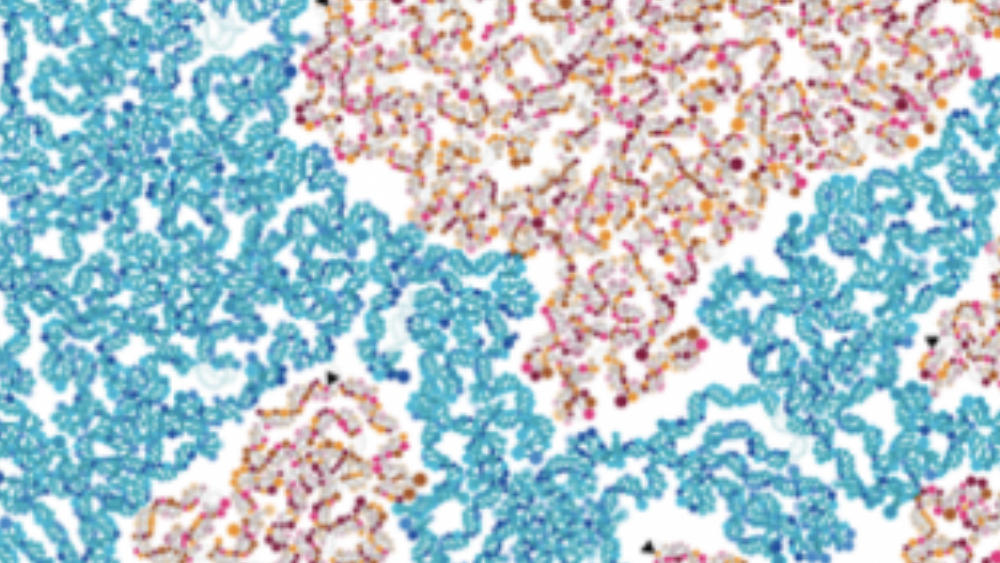
Balancing openness with Indigenous data sovereignty: An opportunity to leave no one behind in the journey to sequence all of life
The field of genomics has benefited greatly from its “openness” approach to data sharing. However, with the increasing volume of sequence information being created and stored and the growing number of international genomics efforts, the equity of openness is under question. The United Nations…
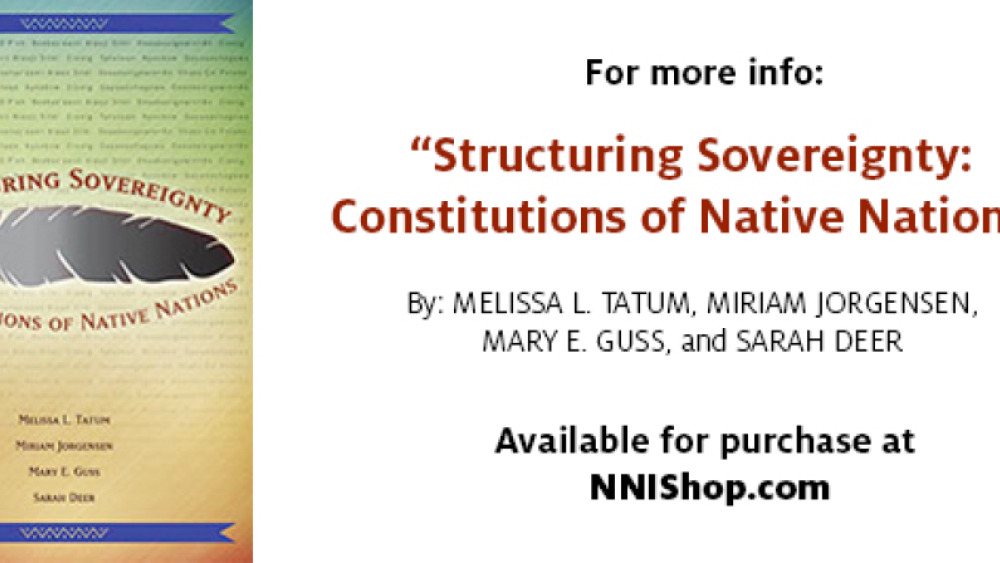
Afghanistan Constitution
Afghanistan is located on the edge of Middle East, bordering Asia, with a population of 31 million people and an Islamic Republic form of government. The constitution was ratified in 2004. Preamble: In the name of Allah, the Most Beneficent, the Most Merciful, Praise be to Allah, the Cherisher and…
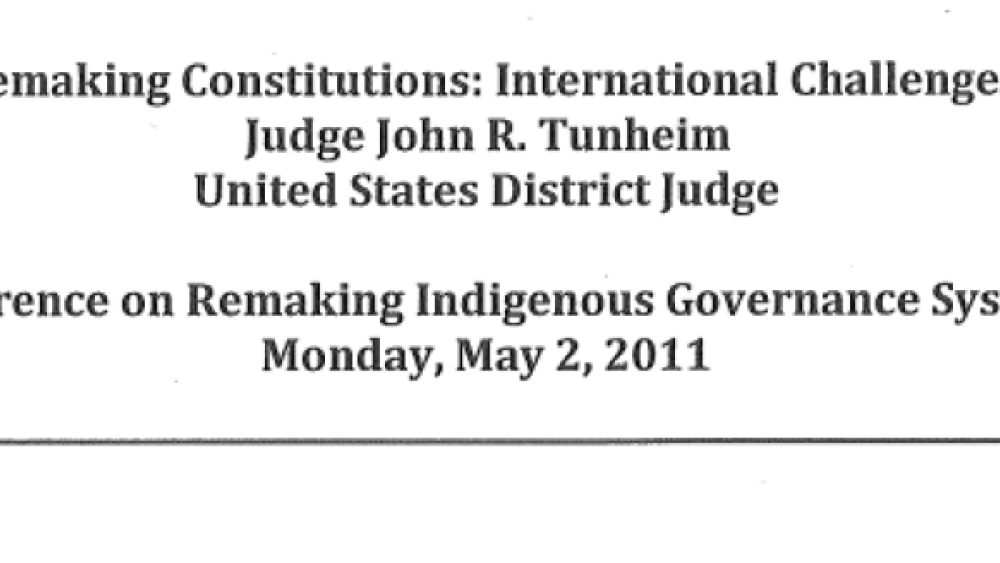
Remaking Constitutions: International Challenges
U.S. District Court Judge John R. Tunheim, whose work in Kosovo helped the United Nations re-establish and improve Kosovo's legal system and ultimately restructure its entire judiciary, discusses his observations as the principal outside advisor to the process that developed the Kosovo Constitution…
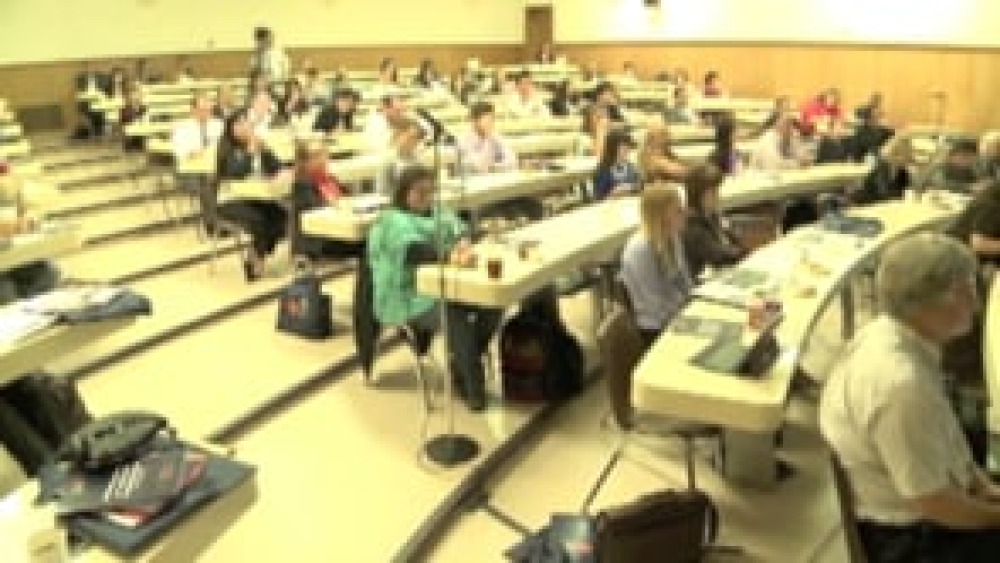
Good Native Governance Plenary 1: Innovations in Law
UCLA School of Law "Good Native Governance" conference presenters, panelists and participants Carole E. Goldberg, Matthew L.M. Fletcher, and Kristen A. Carpenter discuss law and the issues that Native nations deal with. Goldberg explains the recommendations of the Indian Law and Order Commission…
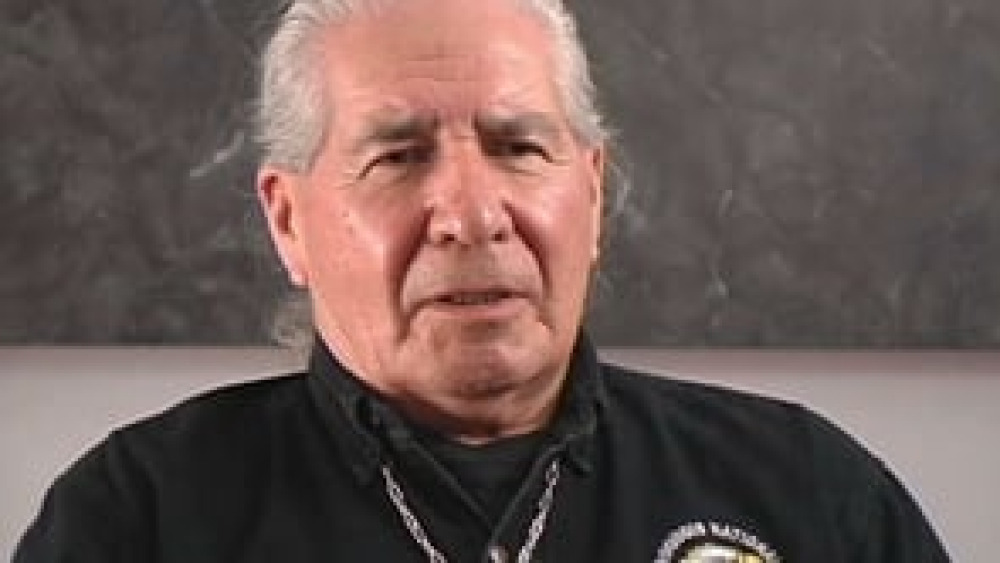
Great Tribal Leaders of Modern Times: Oren Lyons
Produced by the Institute for Tribal Government at Portland State University in 2004, the landmark “Great Tribal Leaders of Modern Times” interview series presents the oral histories of contemporary leaders who have played instrumental roles in Native nations' struggles for sovereignty, self-…
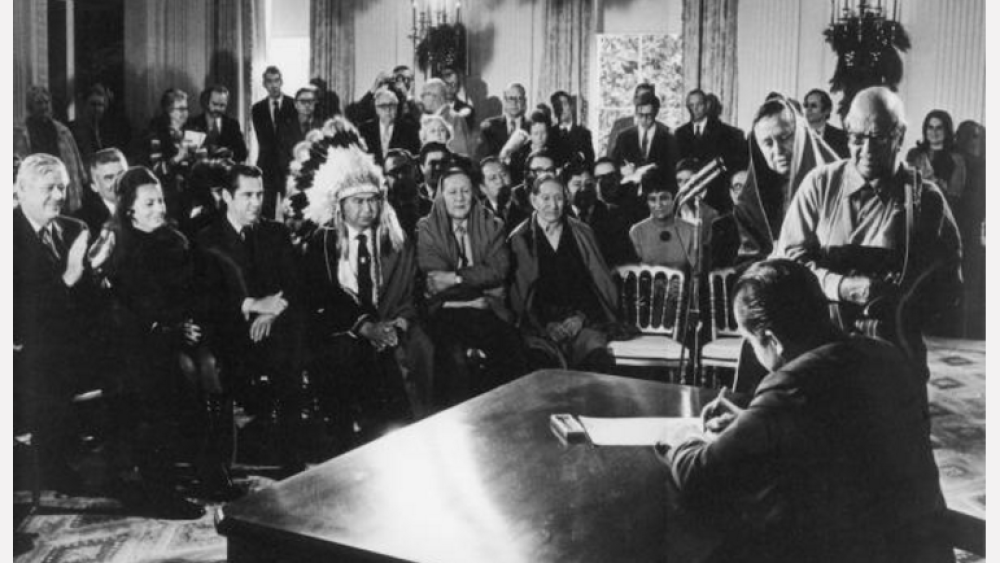
What Is Indigenous Self-Determination and When Does it Apply?
Self-determination is an expression often used in discussion of indigenous goals. However, the meaning of self-determination varies among Indigenous Peoples, scholars, international documents, and nation states. The most common meaning of self-determination suggests that peoples with common…
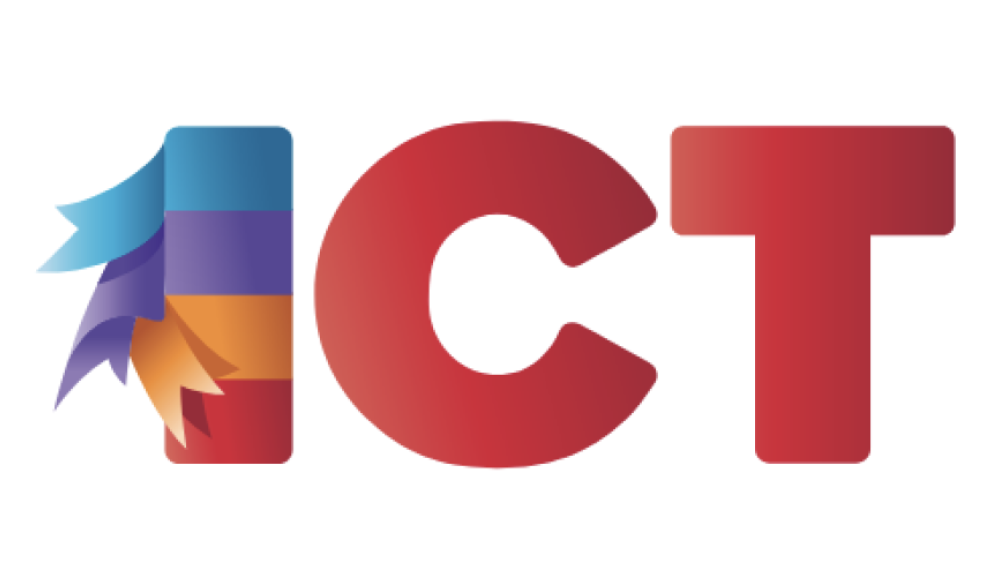
How Tribal Nations Need to Be Understood Around the World
The word “nation” is one of those words that gets thrown around haphazardly by academics, laypeople and politicians alike; it has become synonymous with “nation-state” and “state” to describe what we understand today as the global polities we refer to as countries. But there are distinctions to be…

Advancing the State-Tribal Consultation Mandate
This summer, in the face of an impending private land sale of Pe’Sla, a Lakota/Dakota/Nakota Indian sacred site in the Black Hills, the United Nations Special Rapporteur on the Rights of Indigenous Peoples, S. James Anaya, directed that authorities in South Dakota “engage in a process of…

Indian Self-Determination and Sovereignty
If ever a concept grabbed hold of hearts and minds in Indian country in the past couple decades surely it would be that of sovereignty. Native people talk about it with reverence, demanding that it be respected by the federal government, and expect their tribal governments to assert it. Even the…

The Legacy of the Doctrine of Discovery
Let's Talk Native Radio program host John Kane discusses the implications of asserting the Doctrine of Discovery on Native lands and the role that treaties play in recognizing and affirming the inherent sovereignty of Native nations.
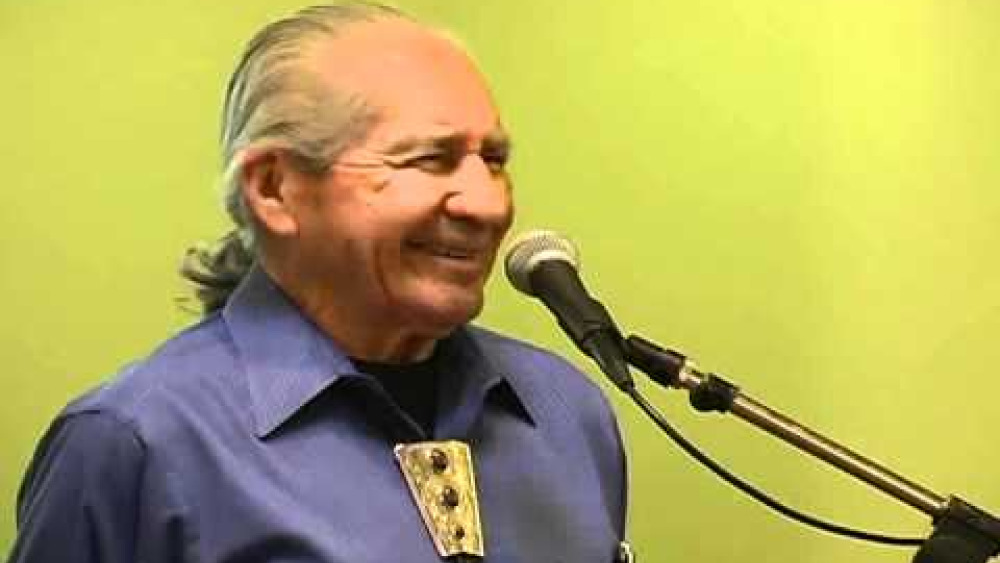
Chief Oren Lyons on International Leadership and Empowerment
In this presentation, Chief Oren Lyons discusses the topic of international leadership and empowerment. The speech was given on March 18, 2011, at Humboldt State University.
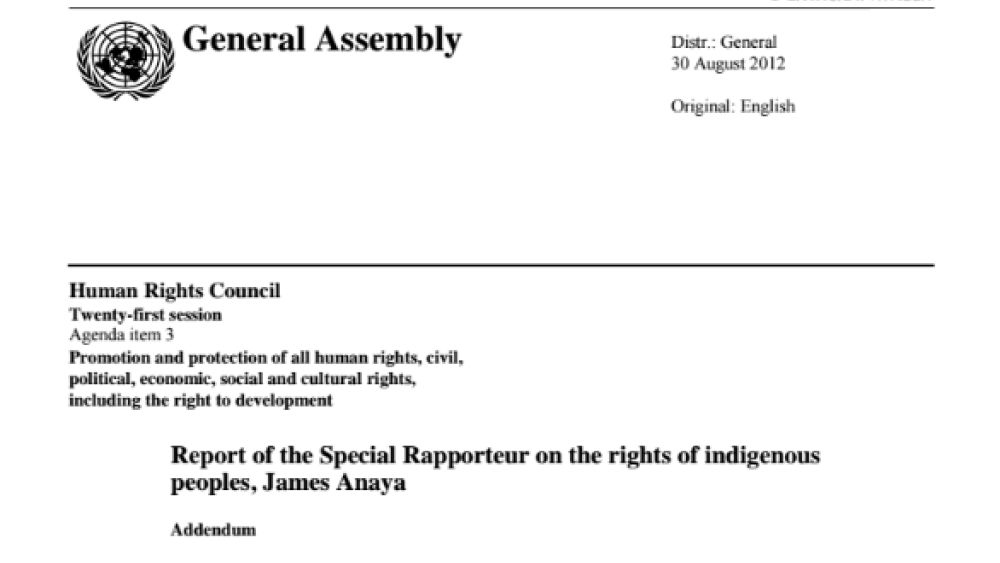
The situation of indigenous peoples in the United States of America
In this report, the United Nations Special Rapporteur on the rights of indigenous peoples examines the human rights situation of indigenous peoples in the United States, on the basis of research and information gathered, including during a visit to the country from 23 April to 4 May 2012. During…
